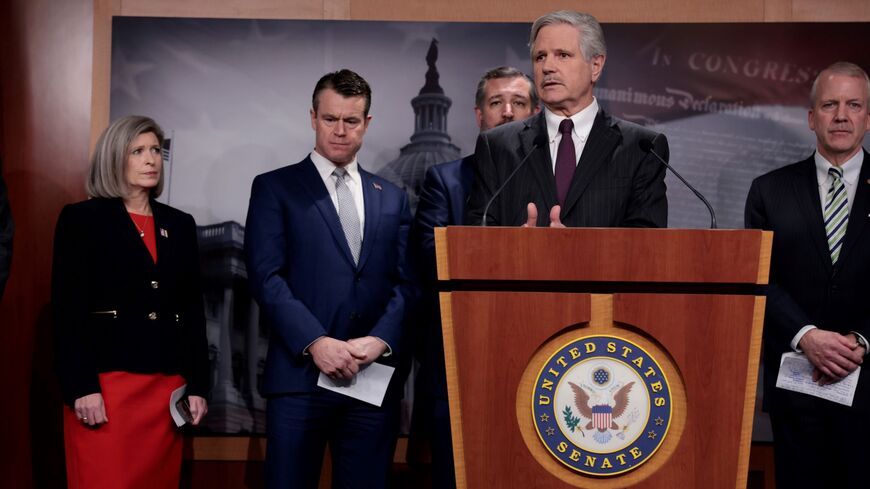Iran Nuclear Deal And Israel's Strategic Vulnerability

Table of Contents
The JCPOA and its Implications for Israel
The JCPOA, signed in 2015, aimed to curb Iran's nuclear program in exchange for sanctions relief. Its impact on Israel's strategic vulnerability was multifaceted.
Reduced Enrichment Capabilities
Under the JCPOA, Iran agreed to significant limitations on its uranium enrichment capabilities. This was intended to increase the "breakout time"—the time it would take Iran to produce enough fissile material for a nuclear weapon.
- Limitations on centrifuges: The deal restricted the number and type of centrifuges Iran could use, limiting its ability to rapidly enrich uranium.
- Reduced enriched uranium stockpiles: Iran was required to significantly reduce its stockpile of enriched uranium.
- Implementation timeline: The deal's implementation involved a phased approach, with verification mechanisms in place to monitor compliance.
These limitations, while significant, were viewed by some in Israel as insufficient to completely eliminate the threat. Israel's security concerns regarding Iran's nuclear program remained, despite the JCPOA's efforts to constrain its uranium enrichment. Israel continued to express its concerns about the deal's long-term effectiveness and Iran's ultimate intentions regarding its nuclear program.
Increased International Scrutiny
The JCPOA enhanced international scrutiny of Iran's nuclear activities through the International Atomic Energy Agency (IAEA).
- IAEA inspections: The deal provided for a robust inspection regime, allowing IAEA inspectors greater access to Iranian nuclear facilities.
- Reporting mechanisms: Iran was required to provide regular reports to the IAEA on its nuclear activities.
- Limitations of the inspection regime: Despite the increased scrutiny, concerns remained about the limitations of the inspection regime, particularly regarding potential undeclared sites or covert activities.
While the increased international monitoring potentially mitigated some of Israel's security concerns, it didn't completely alleviate them. The IAEA's ability to detect and prevent clandestine nuclear activities remained a subject of debate and uncertainty. The verification mechanisms, though strengthened, were not foolproof.
Regional Power Dynamics
The JCPOA significantly impacted regional power dynamics, impacting Israel's relationship with its rivals.
- Iran's regional influence: Even with the restrictions on its nuclear program, Iran maintained considerable regional influence, supporting proxy groups and engaging in regional conflicts.
- Proxy wars: Iran's support for proxy groups in countries like Lebanon, Syria, and Yemen continued to be a major source of instability and a significant concern for Israel.
- Potential for escalation: The JCPOA did not address Iran's ballistic missile program or its support for terrorism, leaving a lingering concern about the potential for regional escalation.
From Israel's perspective, the JCPOA, while aimed at mitigating the nuclear threat, did little to address the broader regional security challenges posed by Iran. The continued regional instability fueled Israel's security concerns, regardless of the progress on the nuclear front.
Post-JCPOA Landscape and Heightened Vulnerability
The US withdrawal from the JCPOA in 2018 and Iran's subsequent actions have dramatically increased Israel's strategic vulnerability.
Iran's Accelerated Nuclear Program
Following the US withdrawal, Iran significantly accelerated its nuclear program.
- Increased uranium enrichment levels: Iran has steadily increased the level of uranium enrichment, moving closer to weapons-grade material.
- Advancements in centrifuge technology: Iran has made significant advancements in its centrifuge technology, allowing for faster and more efficient uranium enrichment.
- Potential for weaponization: The increased enrichment capabilities have shortened Iran's "breakout time," raising concerns about its potential to rapidly develop nuclear weapons.
Military Options and Risks
Facing an emboldened Iran, Israel faces difficult choices regarding its military options.
- Preemptive strike: A preemptive strike against Iranian nuclear facilities remains a controversial option, fraught with risks of regional escalation and potential international condemnation.
- Sanctions: Maintaining and strengthening international sanctions remains a key element of Israel's strategy, although their effectiveness has been debated.
- Diplomatic pressure: Israel continues to engage in diplomatic efforts to pressure Iran, advocating for a stronger international response.
Each option carries significant risks and uncertainties, and Israel faces a complex calculation in deciding on the most appropriate response. The potential for regional conflict remains a major concern.
Diplomatic Efforts and Challenges
Diplomatic efforts to address the Iranian nuclear program face considerable challenges.
- Role of international powers: The US, European Union, and other international powers have engaged in various diplomatic initiatives to revive the JCPOA or negotiate a new agreement.
- Obstacles to negotiation: Significant obstacles remain, including Iran's demands and the lack of trust between the parties involved.
The path to a new agreement remains uncertain, leaving Israel in a precarious position. The failure to reach a comprehensive solution increases Israel's strategic vulnerability exponentially.
Conclusion: Assessing Israel's Vulnerability in the Face of Iran's Nuclear Ambitions
The Iran Nuclear Deal, or the absence thereof, has profoundly impacted Israel's strategic vulnerability. Iran's actions since the US withdrawal have dramatically increased the threat, leaving Israel with limited options and facing a complex and dangerous situation. The ongoing uncertainty surrounding Iran's nuclear ambitions, coupled with its regional activities, requires continued vigilance and concerted international efforts. Further research and discussion on the Iran Nuclear Deal and its implications for Israel's national security and strategic vulnerability are crucial. Explore related resources and articles to deepen your understanding of this critical issue.

Featured Posts
-
 Understanding The Good Life Key Elements For A Fulfilling Existence
May 31, 2025
Understanding The Good Life Key Elements For A Fulfilling Existence
May 31, 2025 -
 Full List Estevan Street Sweeping Schedule Now Available
May 31, 2025
Full List Estevan Street Sweeping Schedule Now Available
May 31, 2025 -
 Who Reports Surge In Covid 19 Cases Linked To New Variant
May 31, 2025
Who Reports Surge In Covid 19 Cases Linked To New Variant
May 31, 2025 -
 Viaja Al Siglo Xix Con Esta Receta Aragonesa De 3 Ingredientes
May 31, 2025
Viaja Al Siglo Xix Con Esta Receta Aragonesa De 3 Ingredientes
May 31, 2025 -
 Thompsons Unlucky Monte Carlo Run
May 31, 2025
Thompsons Unlucky Monte Carlo Run
May 31, 2025
